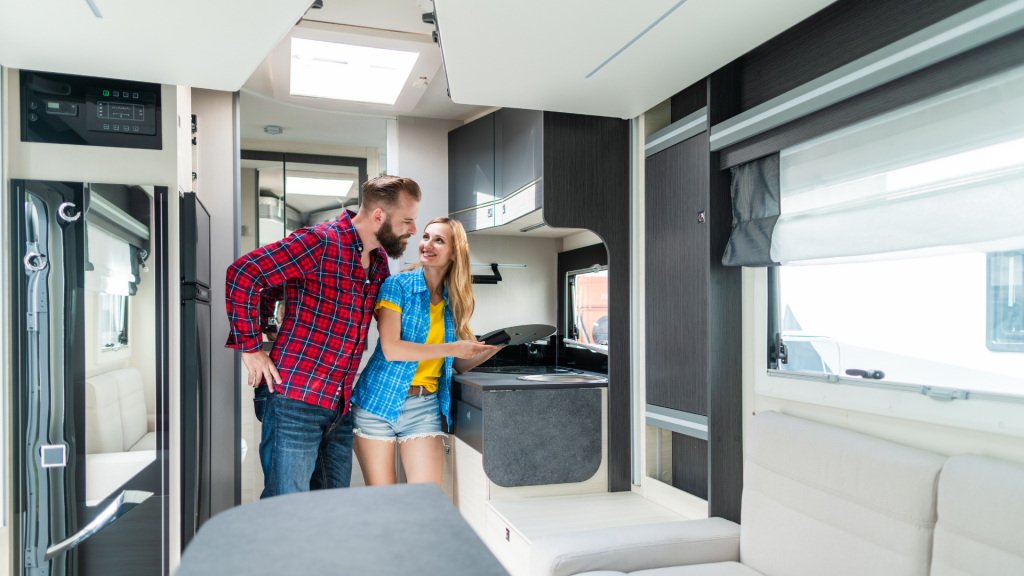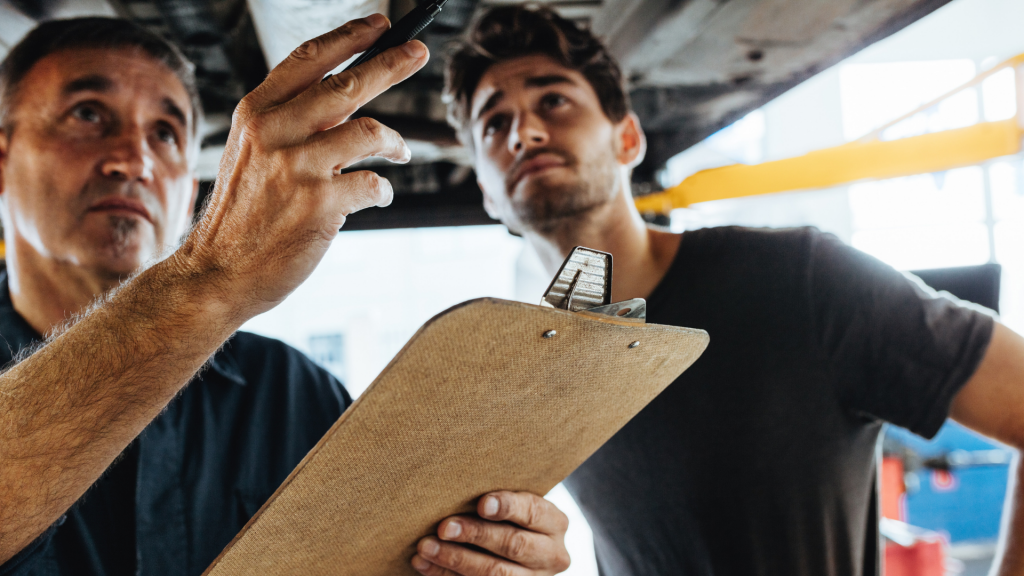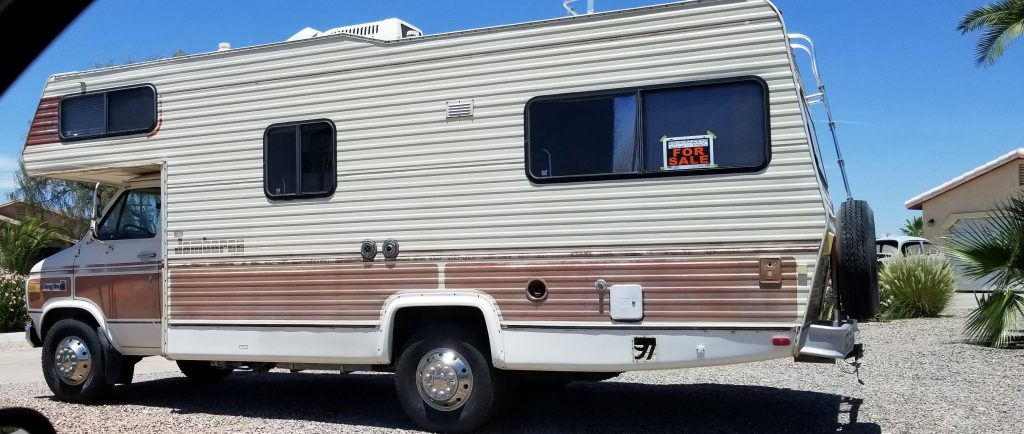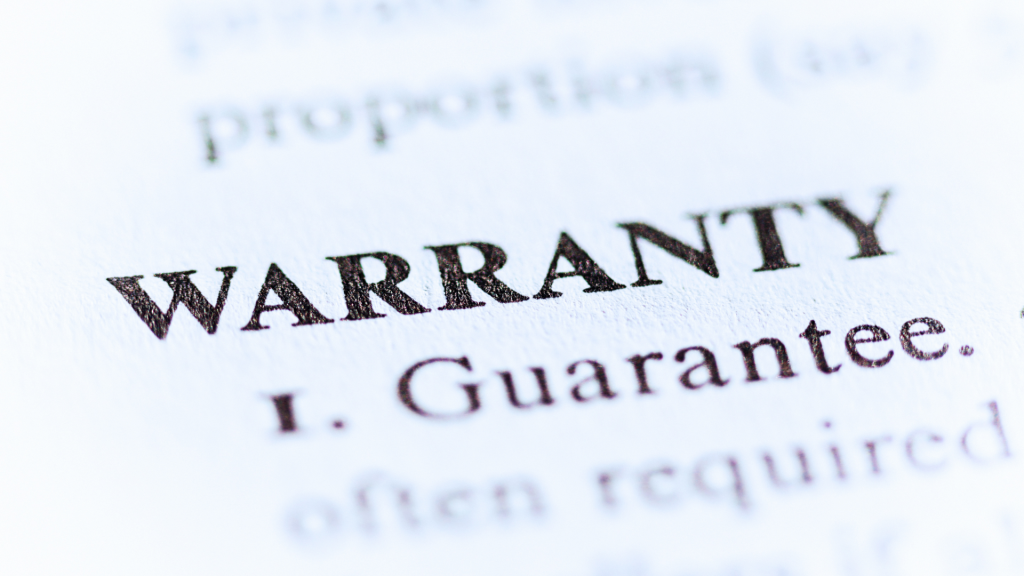Buying an RV is a huge and exciting purchase. Because it’s so exciting, it’s easy to make mistakes. Don’t lose money buying an RV or, even worse, end up with a lemon. Here are 11 of the most common RV buying mistakes you should avoid.
Don’t Make These Mistakes When Buying an RV
Whether you’re new to RV buying or you’ve been around the block a time or two, mistakes happen. Here are some of the most common ones people make when getting an RV.
1. Buying Brand New
How could buying a brand new RV be a mistake? Depreciation. The moment you drive that brand new RV off the lot, it loses a ton of value. Buying used, however, can save you money upfront and lessen the impact of depreciation.
Buying a brand new RV doesn’t save you from breakdowns and maintenance issues. Every new RV goes through what RVers refer to as the “shakedown” period. Your first few trips in your brand new RV will reveal every manufacturing mishap, and sometimes they’re pretty big.

2. Buying Sight Unseen
You should never buy sight unseen. Unfortunately, many of those incredible deals you find online are scams. You could run into scams on Facebook, eBay, and Craigslist.
Not all RV sellers are honest. If a seller asks you to buy the RV before you see it, or they promise to ship it to you with a seven- or 10-day return policy, it’s a scam. Plus, the RV could have hidden issues that you can’t see in photos.
3. Not Getting an Inspection
One of the most common RV buying mistakes is buying an RV without getting it inspected first. Hiring a certified RV inspector could save you thousands of dollars. RV inspectors can alert you to any hidden problems with the RV and help you negotiate a fair purchase price. You can find a certified RV inspector through the National Recreational Vehicle Inspectors Association.

4. Not Considering Tow Vehicle Capabilities or Cargo Carrying Capacity
Towing capacity is a commonly overlooked spec by newbies. But this is a vital consideration when purchasing an RV. Before you buy a travel trailer or fifth wheel, be sure that your vehicle has the towing capacity to haul it safely. Or, if you want to purchase a motorhome and tow your vehicle behind it, be sure that the motorhome has the towing capacity to handle it.
5. Rushing Your Purchase
Never rush your RV purchase. Buying an RV is a huge decision that you shouldn’t make lightly. It’s easy to let emotions get the best of you, especially when faced with pushy salespeople. Take your time, do your research, and get your RV inspected before you make a purchase.
6. Buying a “Fixer-Upper”
Buying a fixer-upper isn’t always a mistake. If you’re a handy person who understands the time, labor, and money that goes into repairing a fixer-upper, go for it. The problem with buying a fixer-upper is that most RV buyers severely underestimate the amount of time, money, and labor required to fix an RV in disrepair.

7. Not Researching to Get a Fair Price
When you find an RV you want to buy, look online at NADA guides and comparable models to find the average sales price. Use marketplaces like RV Trader, Craigslist, and Facebook to help gather price information. This will get you a far better price than if you neglect to do your research.
8. Buying Too Big
If you’re new to RVing, you may think you need the biggest RV on the market. But buying too big can be a mistake. Many RVers start small and upgrade as their needs and lifestyles change. Big RVs require more planning and are harder to maneuver, which can make the lifestyle daunting if you’re new. Rent a few different sizes and styles of RV before making a decision.
9. Buying Too Small
Buying an RV that’s the wrong size can make you quickly regret your purchase, especially if you end up stuck in too small a space. This is another instance where renting different RV types and sizes can come in handy.
10. Not Getting an Extended Warranty
If you purchase a used RV, you should also buy an extended warranty. New RVs come with manufacturers’ warranties, but used RVs sell “as-is.”
Some extended warranties cover the powertrain, and some cover the systems and appliances in the RV. An extended RV warranty can save you a lot of money in the long run, so research to figure out what kind you need for your vehicle.

11. Not Testing Every System
Whether you’re buying new or used, you should test every system in the RV. This includes the plumbing, every appliance, every light, the slide-outs and leveling system, and more. An RV inspector will test most of these systems as well, but it’s a good idea to do it yourself, too.
Avoid RV Buying Mistakes
Buying an RV doesn’t have to be a scary or difficult experience. Do your research, hire an inspector, and test everything. Never rush your purchase. If your “dream RV” falls through, there will be another one.

Leave a Reply